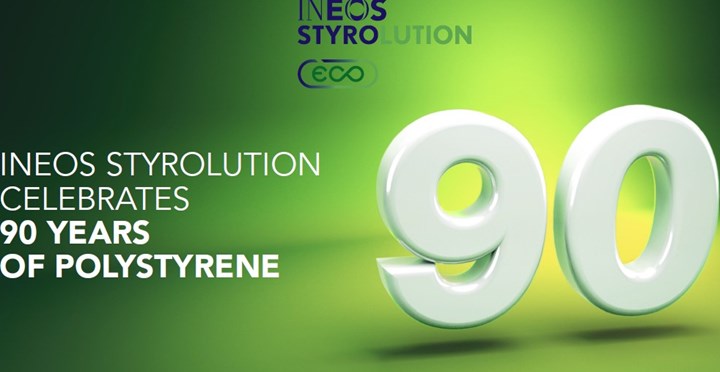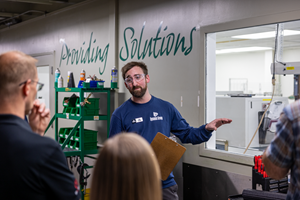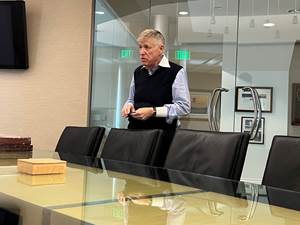Ineos Styrolution Celebrates 90 Years of Polystyrene
One of the world’s first commercial-scale polymers, now 90 years old, PS is positioned today as a material that can be recycled via a wide range of technologies.
For some time now, polystyrene has been and is facing bans globally, particularly in the case of takeout and delivery expanded polystyrene (EPS) foam food and drink packaging. And while this trend may continue, polystyrene has established itself in several other applications that are likely to remain stable.
Moreover, efforts by styrenic producers through industry collaborations are underway to support recycling technologies that could potentially reposition polystyrene in the food packaging sector. Certainly some price correction would help. As we have been reporting, prices for all the five large-volume commodity resins have been on a pretty significant upward trajectory. In the case of polystyrene, the increases have been primarily driven by feedstock price volatility, particularly benzene, versus supply/demand, though some feedstock supply constrictions have played a part.

According to global leader in styrenics , which is celebrating polystyrene’s 90th birthday, the material has a lot going for itself. Noting that the material was among the first polymers deployed at commercial scale, the company says polystyrene is made for recycling, making it well suited for a circular economy and low- carbon economy,
The road to the production of polystyrene was paved in 1929 with the first patents on the production of styrene monomer from ethylbenzene and a year later for the continuous polymerization of styrene monomer to polystyrene. The technology was perfected through 1931, when the first ready-to-use polystyrene was produced.
Ineos Styrolution noted that polystyrene and styrenic polymers in general are an indispensable part of our lives. They cite the use of polystyrene in building insulation that results in lower energy consumption, the use of styrenics that help reduce the weight of vehicles, their use in appliances, and their use in life-saving applications in the healthcare industry, including virus detection kits, respiratory devices, safety goggles and face shields to combat the ongoing COVID-19 pandemic.
Moreover, Ineos Styrolution sees polystyrene as a great choice for food packaging as it helps reduce the amount of food being wasted, keeping it fresh and safe. Polystyrene can be recycled via a wide range of technologies from mechanical recycling to more advanced recycling methods such as depolymerization and pyrolysis. According to the latest developments, said the company, mechanically recycled polystyrene even promises to enable food contact.
Ineos Styrolution’s focus now is on advancing a circular and low-carbon economy by recycling styrenic materials including polystyrene and substituting fossil feedstock with either recycled or renewable sources in our production processes.
Said Alexander Glück, president EMEA, “Ineos Styrolution’s Eco grades are the result of our strong efforts driving our circular and low-carbon agenda forward. Our Eco portfolio includes mechanically recycled solutions as well as materials made from recycled or renewable feedstock. Both are now available commercially and products based on advanced recycling technologies will come soon. These sustainable materials continue to offer the best performance to our customers and end-consumers, with no compromise on quality or safety.”
Added Gregory Fordyce, president Americas, “With the different recycling technology options we are actively pursuing, we are convinced that polystyrene will continue to be the material of choice for decades to come. Together with our partners, we are investing significantly into commercializing advanced recycling solutions.”
Related Content
Medical Molder, Moldmaker Embraces Continuous Improvement
True to the adjective in its name, Dynamic Group has been characterized by constant change, activity and progress over its nearly five decades as a medical molder and moldmaker.
Read MorePaperless ‘Smart Factory’ Based on Automated Production Monitoring
Tier 1 automotive molder’s home-built production-monitoring and ERP systems, designed for “the little guy,” boost its efficiency rating and profits.
Read MoreMultilayer Solutions to Challenges in Blow Molding with PCR
For extrusion blow molders, challenges of price and availability of postconsumer recycled resins can be addressed with a variety of multilayer technologies, which also offer solutions to issues with color, processability, mechanical properties and chemical migration in PCR materials.
Read MoreUS Merchants Makes its Mark in Injection Molding
In less than a decade in injection molding, US Merchants has acquired hundreds of machines spread across facilities in California, Texas, Virginia and Arizona, with even more growth coming.
Read MoreRead Next
For PLASTICS' CEO Seaholm, NPE to Shine Light on Sustainability Successes
With advocacy, communication and sustainability as three main pillars, Seaholm leads a trade association to NPE that ‘is more active today than we have ever been.’
Read MoreMaking the Circular Economy a Reality
Driven by brand owner demands and new worldwide legislation, the entire supply chain is working toward the shift to circularity,














